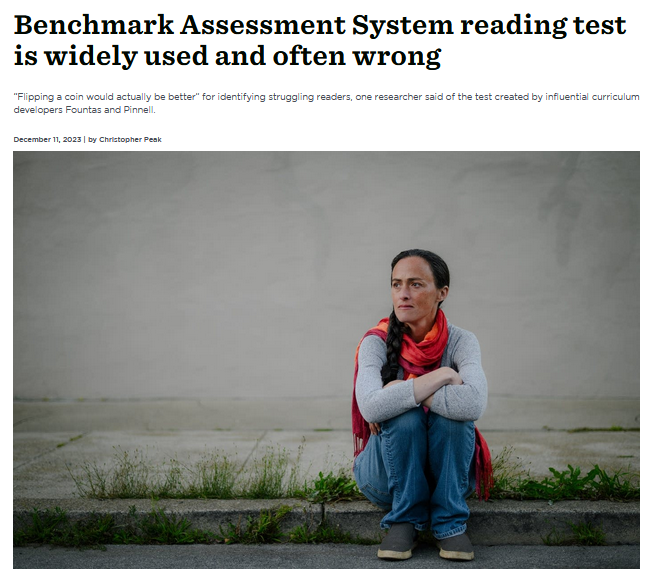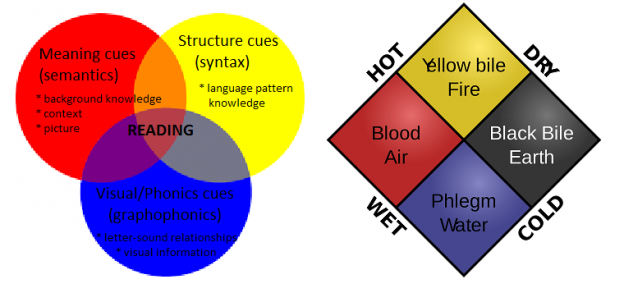Benchmark Assessment: often wrong
0 RepliesIt’s the end of the school year in Australia, so children are getting their end-of-year reports.
Many Australian schools use the American Fountas and Pinnell Benchmark Assessment System (BAS) to evaluate reading skills, but a new American Public Media (APM) report says it fails to identify most struggling readers.

If teachers rely on the BAS results, they will be advising many parents not to worry about their children’s reading skills, though there’s good reason to be concerned.
If you’re in this situation, please seek more reliable and valid assessment. Early intervention is highly effective, and ‘late bloomers’ are more likely to wilt and suffer than catch up.
There are plenty of more cost-effective, efficient, reliable, valid literacy skill assessments available for school use. The excellent, Australian Reading Science in Schools website has an assessment list you can download here. Chances are that teachers using the BAS don’t know about researchers’ adverse findings on it, or good alternatives. Do them a favour, send them the APM report and RSS assessment list.
If your school can’t provide valid, reliable reading/spelling assessment, try asking local Speech Pathologists, Educational and Developmental Psychologists or Specialist Educators for a second opinion. Very young kids can do quite a lot of learning in the summer holidays with good professional guidance and/or by attending programs like our holiday groups. The sooner they catch up with peers, the happier they’ll be in 2024.
Running Records are an uninformative waste of teacher time
31 Replies
I’ve been doing lots of assessment of my clients’ skills in the following areas lately:
- Receptive and/or expressive language
- Articulation
- Phonological awareness
- Phonological/auditory memory
- Rapid Automatised Naming
- Word and pseudoword reading accuracy and efficiency
- Spelling.
These allow me to identify problems in their reading and spelling systems, and work out how significant/severe these problems are, and what to do about them.
I use the robust, evidence-based Simple View of Reading (SVR) to guide my decision-making.
Wherever possible, I use valid, reliable, standardised tests for assessment. However, I once administered a Running Record to a child with selective mutism, because she would talk to me, but not other adults at school (we were working on it). Her class teacher thus asked me to administer the assessment required by the school, which (sad face) used a multi-cueing model of reading and a text level gradient approach to reading assessment. (more…)


